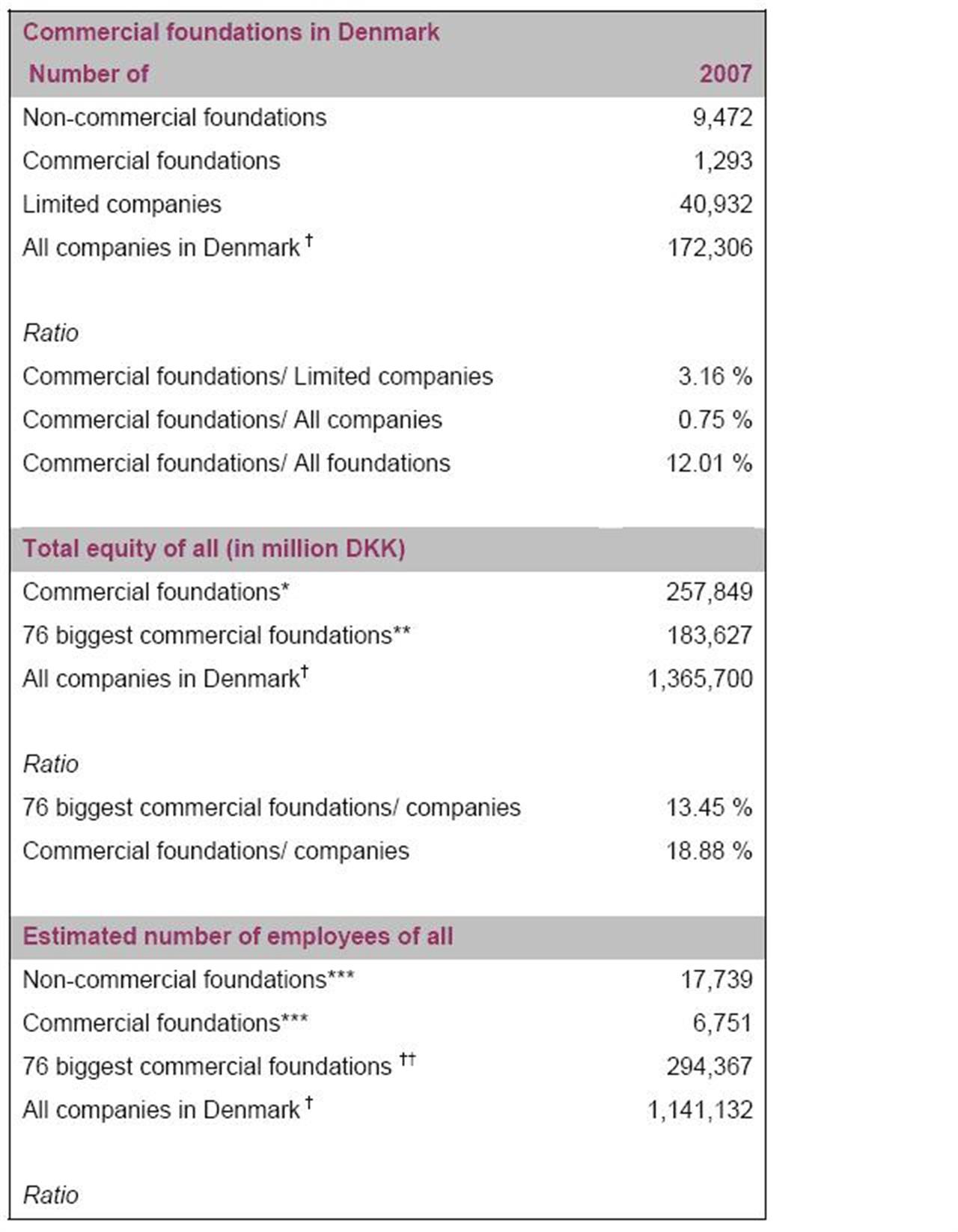According to the report entitled The DanishFoundationSector,produced for the European Foundation Centre’s 5th Chief Executive Symposium, Danish foundations are mainly divided into commercial foundations (for example: corporate foundations) and non-commercial foundations.
The former group, although it is less numerous, is the most relevant in economic terms.
The Civil Affairs Agency, a department of the Ministry of Justice, is the foundation authority for all non-commercial foundations, for the commercial foundations whose main objects belong to the jurisdiction of the Ministry of Justice and for foundations with different scopes that do not belong to the jurisdiction of the same minister (source: http://www.civilstyrelsen.dk/sitecore/content/GlobalMenu/cst_english.aspx).
For all commercial foundations, the foundation authority in charge is instead the Danish Commerce and Companies Agency (source: http://www.civilstyrelsen.dk/sitecore/content/GlobalMenu/cst_english.aspx).
Danish foundations are not organized into a network and are not internationally oriented.
Interesting figures for the Danish foundation sector are available in the table in attachment (here on the left; asset figures are likely to be underestimated because all foundations used book values far below market prices), taken from the 2009’s Feasibility Study on a European Foundation Statute by University of Heidelberg – Centre for Social Investment and Max Planck Institute for Comparative and International Private Law.
To view a more detailed Legal and Fiscal Profiles of Denmark (2008), click here.
Commercial foundations
According to the Feasibility Study on a European Foundation Statute by University of Heidelberg – Centre for Social Investment and Max Planck Institute for Comparative and International Private Law (2009), Danish foundations can benefit of a specific status that allows them to run commercial activities either directly or by controlling commercial entities. These foundations are called commercial foundations, and are regulated by the 1991’s Act on Commercial Foundations.
Together with their commercial purposes, commercial foundations can also have a public benefit scope. In this case, commercial foundations have to provide a regulation concerning the distribution of profits in their charters.
The sector of commercial foundations is highly concentrated: the 76 largest commercial foundations owns approximately two thirds of the equity of all commercial foundations.
Commercial foundations represent 12% of all the Danish foundations by their number, and 19% of the equity of all companies in Denmark.
Employees who actually work in commercial foundations in Denmark represent 2.15% of the total workforce.
The total equity of all the commercial foundations amount to 16.6% of the Danish GDP.
17 centesimi al giorno sono troppi?
Poco più di un euro a settimana, un caffè al bar o forse meno. 60 euro l’anno per tutti i contenuti di VITA, gli articoli online senza pubblicità, i magazine, le newsletter, i podcast, le infografiche e i libri digitali. Ma soprattutto per aiutarci a raccontare il sociale con sempre maggiore forza e incisività.

